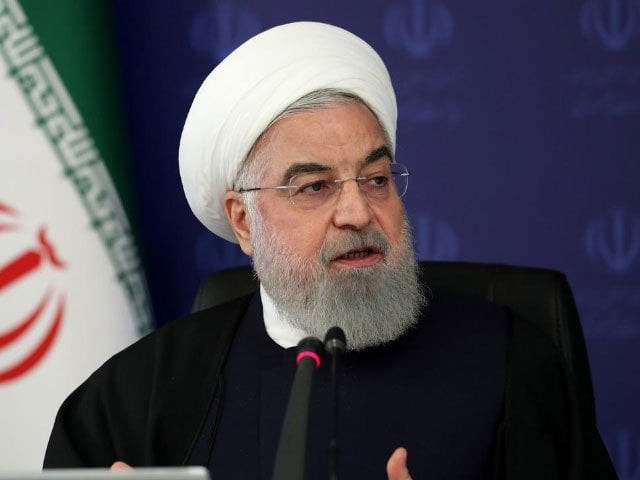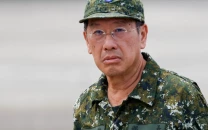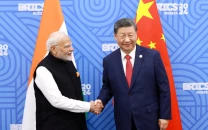Iran says 60% enrichment response to Israel's 'nuclear terrorism'
Rouhani pledges that Iran's nuclear activity will "certainly be peaceful" and under IAEA supervision

Iran's President Hassan Rouhani said Wednesday its decision to boost uranium enrichment to 60 per cent was a response to arch-foe Israel's "nuclear terrorism" against its Natanz facility.
Tehran starting advanced centrifuges and producing more highly refined uranium "is the response to your malice," Rouhani said in a message aimed at Israel.
"What you did was nuclear terrorism," he said in televised remarks, referring to a blast early Sunday that knocked out electricity at its main nuclear facility in central Iran. "What we do is legal."
Israel has neither confirmed nor denied involvement but public radio reports in the country said it was a sabotage operation by the Mossad spy agency, citing unnamed intelligence sources.
Rouhani noted that Iran's security bodies were yet to provide a final report but that the incident appeared to be a "Zionists' crime".
Iran's envoy to the UN's International Atomic Energy Agency, Kazem Gharibabadi, wrote on Twitter that preparatory measures to allow enrichment to higher purity had started and that "we expect to accumulate the product next week" from centrifuges at Natanz.
Iran's announcement of stepped-up enrichment, made Tuesday, has cast a shadow over talks in Vienna aimed at salvaging the 2015 nuclear deal between Iran and world powers that then US president Donald Trump abandoned three years ago.
Read more: Iran to begin 60% uranium enrichment after nuclear site incident
The step will bring Iran closer to the 90 per cent purity threshold for military use and shorten its potential "breakout time" to build an atomic bomb -- a goal the Islamic republic denies.
Under the nuclear deal, Iran had committed to keep enrichment to 3.67 per cent, though it had stepped this up to 20 per cent in January.
'You cannot stop us'
Israel has often vowed it will stop Iran from ever building an atomic bomb, which it would regard as an existential threat.
It is strongly opposed to US President Joe Biden's efforts to revive what it regards as a flawed nuclear agreement between Iran and the UN Security Council's permanent members plus Germany.
The accord, agreed when Biden was vice president to Barack Obama, promised Tehran relief from punishing sanctions in return for agreeing to limits on its nuclear programme.
The United States said Tuesday it stood by Israel but remained committed to the Iran talks despite Tehran's enrichment plan.
Rouhani asserted that Israel had aimed to deprive Iran of its leverage during the Vienna talks, saying: "You want our hands to be empty during negotiations, but we will go there with fuller hands."
He stressed that Iran had decided on the more advanced centrifuges and higher enrichment so that Israel "would understand that you cannot stop us" from using the technology.
He also pledged that Iran's nuclear activity will "certainly be peaceful" and under IAEA supervision.
Iran has said it requires the more highly enriched uranium for medical purposes. Gharibabadi said in his tweet that the new material "will improve significantly both the quality and quantity of radiopharmaceutical products".



















COMMENTS
Comments are moderated and generally will be posted if they are on-topic and not abusive.
For more information, please see our Comments FAQ